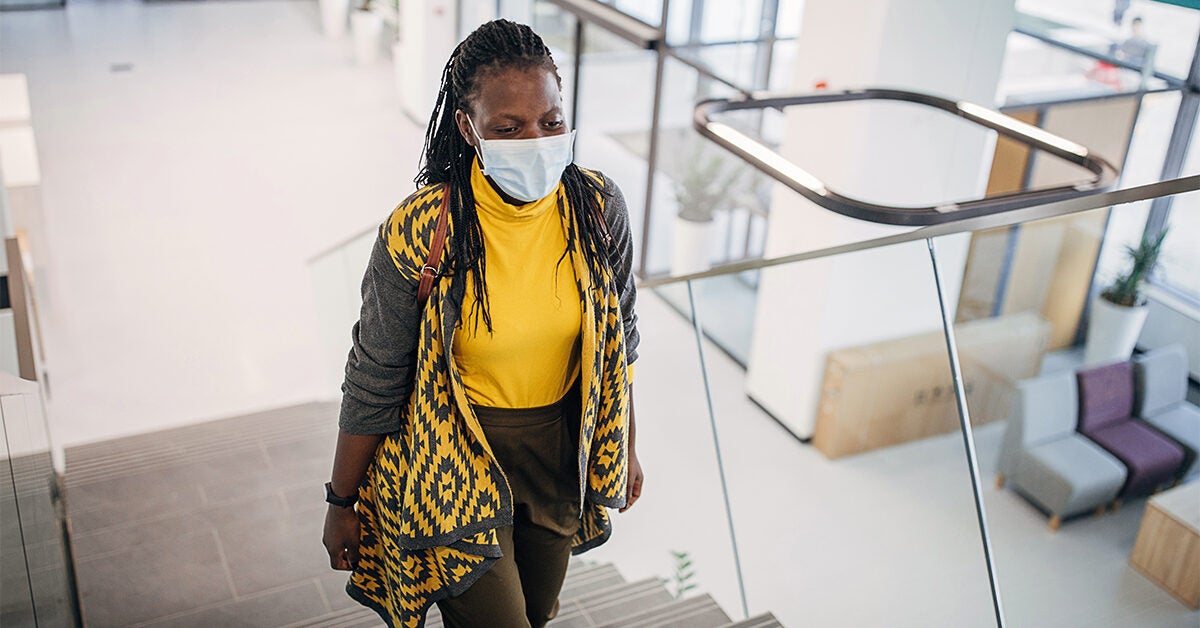Leukemia After COVID-19: Is There a Connection? - Healthline

More than 500 million people have been diagnosed with COVID-19 since late 2019. Most people who develop COVID-19 have mild disease, but there's compelling evidence that people with certain health conditions like leukemia are at elevated risk of severe disease or death.
A 2021 study presented at the 63rd American Society of Hematology Annual Meeting and Exposition found that people with blood cancer have a 17 percent chance of dying from COVID-19, significantly higher than the general population.
It's less clear if COVID-19 increases your risk of developing leukemia or other blood cancers. Some researchers think it's plausible that COVID-19, in combination with other factors, could contribute to cancer development. At this time, the link remains theoretical.
Read on to learn more about how COVID-19 could, in theory, contribute to the development of leukemia.
Some types of blood cancer have been linked to infections. It's not clear if COVID-19 contributes to the development of leukemia, but scientists have found some theoretical links.
COVID-19 and cancer link
Cancer development is usually a consequence of multiple factors that drive genetic mutations in cancer cells. It's plausible that COVID-19 could predispose your body to cancer or accelerate cancer progression.
Most people with COVID-19 recover within
Chronic inflammation can cause
The immune response in people with COVID-19 is orchestrated by
- interleukin 1 family (IL-1)
- interleukin 6 (IL-6)
- interleukin 8 (IL-8)
- tumor necrosis factor alpha (TNF- α)
COVID-19 is also associated with other processes known to drive cancer formation such as:
- activation of the
JAK-STAT pathway - activation of the MAPK pathway
- oxidative stress from the depletion of angiotensin-converting enzyme 2
COVID-19 and leukemia
A few case studies have reported people admitted to the hospital with leukemia shortly after developing COVID-19. However, it's not clear if COVID-19 played a role or how much of a role it played. Leukemia may have developed coincidentally.
The authors of a 2022 study present a theoretical framework of how COVID-19 could influence the development of blood cancers. According to the researchers, an abnormal immune response to viral infections can indirectly trigger gene mutations that promote leukemia.
The virus that causes COVID-19 can also significantly interact with the renin-angiotensin system, which is suggested to have a role in the development of cancerous blood cells.
In a case study
In another
Other viruses and blood cancers
Some other types of viral infections have been linked to the development of leukemia.
Acute lymphoblastic leukemia (ALL) is the most common childhood cancer, and its rates have been increasing.
Having a human adult T-cell leukemia virus type 1 infection is linked to the development of T-cell leukemia. This virus is transmitted primarily through bodily fluids. The
Some types of infections have been linked to the development of another type of blood cancer called lymphoma. They include:
The FDA has approved the drug
At the time of writing, there's no evidence that remdesivir can cause leukemia.
In a 2021 study, a 6-year-old child with newly diagnosed ALL and COVID-19 was treated with remdesivir and convalescent plasma therapy before starting leukemia treatment.
No adverse events were linked to the therapy, and the researchers concluded this treatment could be considered in people with cancer to accelerate the resolution of the viral infection and to start cancer treatment sooner.
Some researchers have raised concerns that the antiviral drug molnupiravir, which received FDA Emergency Use Authorization on
Does a COVID-19 infection put you at risk for other blood cancers?
The development of blood cancer is complex. Researchers are continuing to examine whether COVID-19 infection can contribute to the development of leukemia or any other blood cancer. Some researchers have posed a theoretical link, but more research is needed.
Can the COVID-19 vaccine cause leukemia?
Is the COVID-19 vaccine effective for people with blood cancer?
About 25 percent of blood cancer patients don't produce detectable antibodies after vaccination, according to the Leukemia & Lymphoma Society (LLS). However, the
LLS experts say vaccination should be combined with other prevention precautions for the best protection.
Are people with blood cancer more likely to develop severe COVID-19?
People with cancer seem to be at a higher risk of severe COVID-19. According to the
Researchers are continuing to examine the link between leukemia and COVID-19. Strong evidence suggests that people with leukemia are at an increased risk of developing severe COVID-19.
Some researchers have posed that COVID-19 could contribute to leukemia formation, but as of now, the link remains theoretical. Much more research is needed to understand the connection.
Comments
Post a Comment